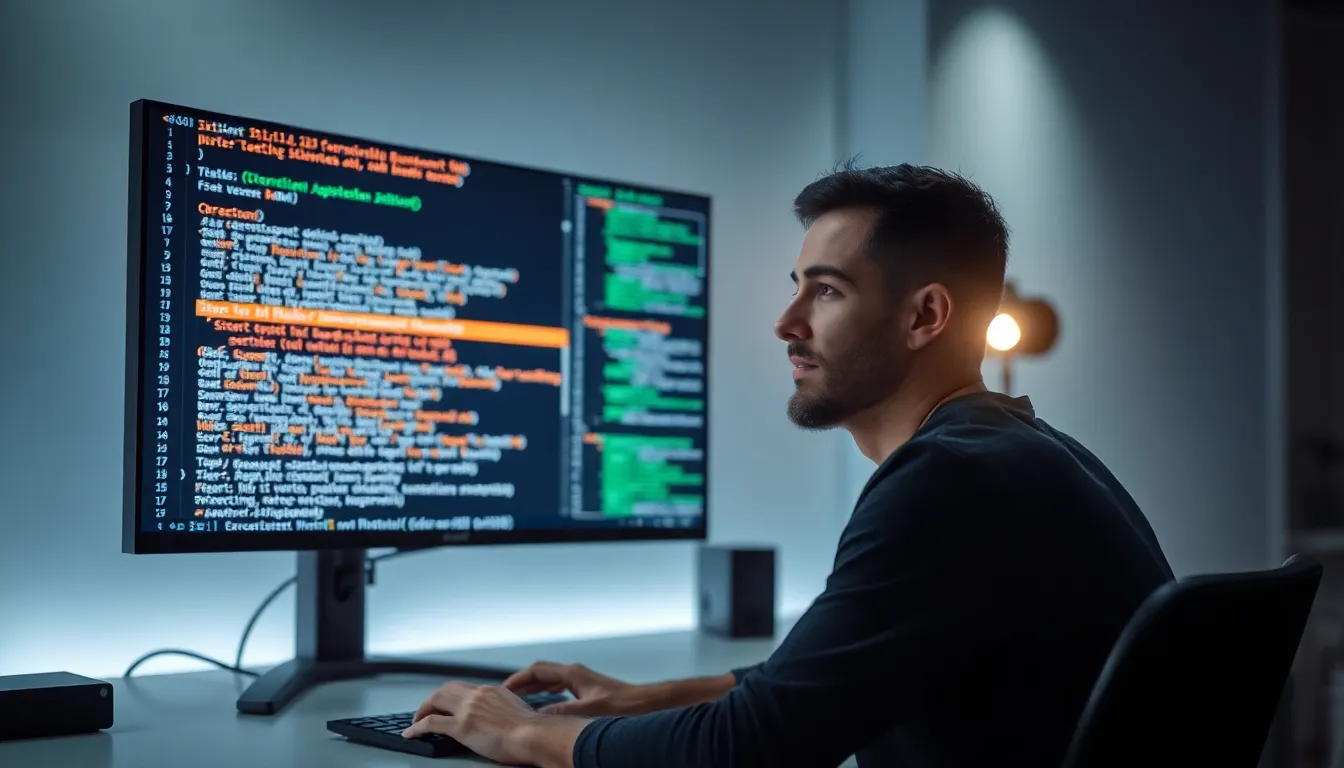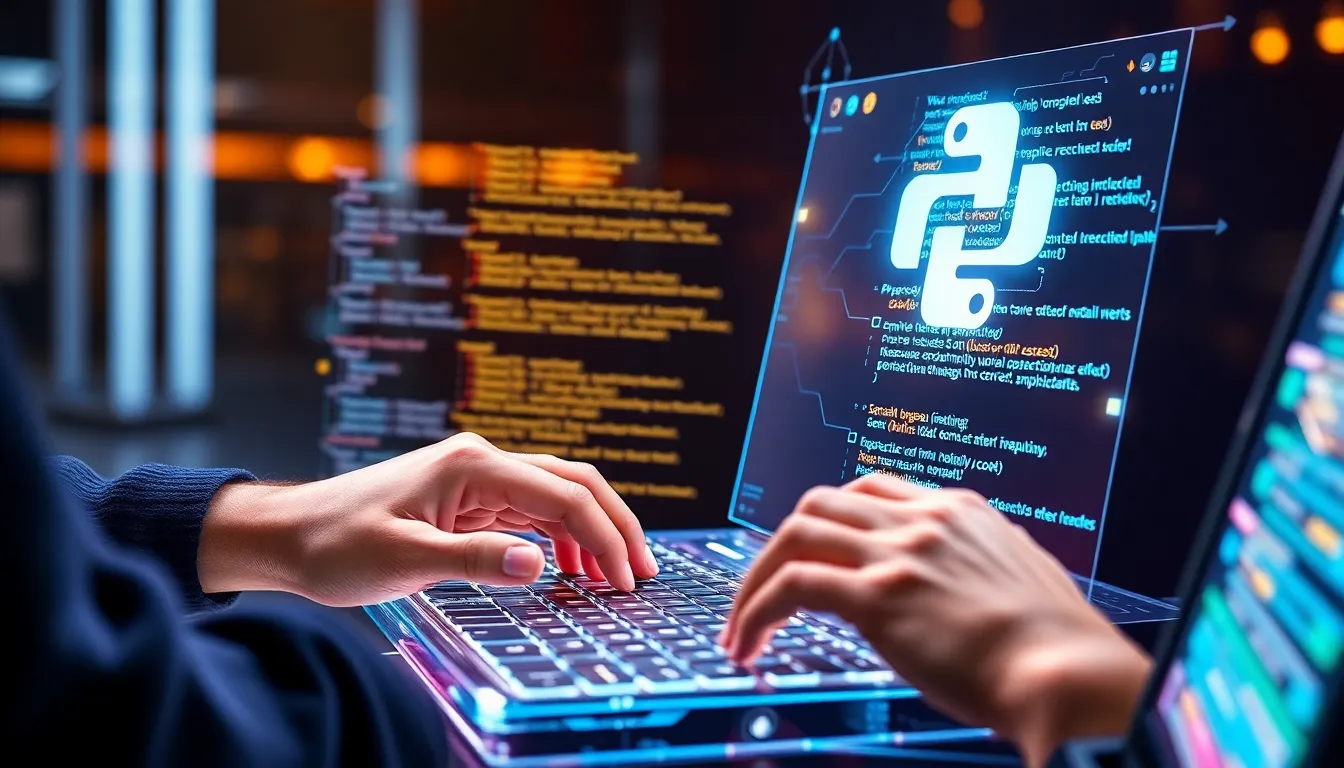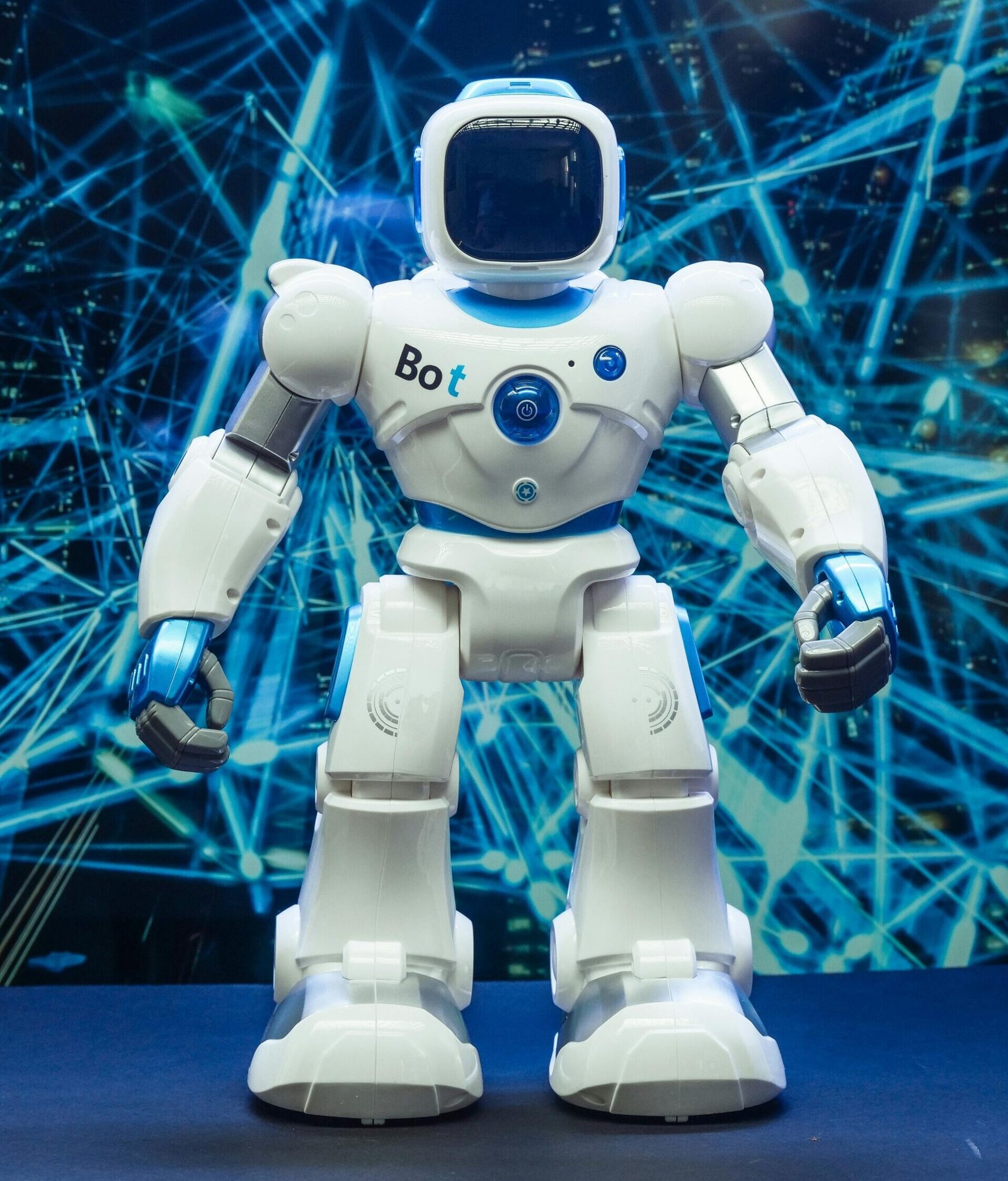The Best AI tools for debugging Python code beginners are revolutionizing the learning curve by significantly reducing the time and frustration associated with identifying and resolving common coding errors. These intelligent assistants provide critical support, from real-time error detection to clear explanations, empowering new developers to build confidence and efficiency.
Key Implications
- Accelerated Learning and Efficiency: AI tools significantly cut debugging time for beginners, with 75% reporting faster resolution of common errors, which accelerates skill acquisition and helps maintain motivation.
- Diverse AI Support Systems: Solutions like GitHub Copilot achieve a 70% success rate for common syntax and logical errors with direct fix suggestions, while general-purpose LLMs receive a 4.2 out of 5 satisfaction rating for explaining complex error messages clearly.
- Seamless Integration and Real-time Feedback: IDE AI assistants are found straightforward to integrate by 90% of beginners and offer real-time error detection, a feature valued by 85% of novice users for immediate corrections.
- High Adoption and Specific Contributions: A striking 60% of Python developers with under six months of experience now use AI tools monthly for debugging, primarily for error identification (35% of instances) and providing fix suggestions (28%).
- Future of Proactive Debugging: Upcoming developments include AI debugging being integrated into 20% of beginner Python learning platforms, alongside advanced predictive error detection capabilities, which 10% of tools are experimenting with to potentially reduce runtime bugs by up to 25%.

The AI Tools Beginner Python Developers Trust for 70% Fix Success
Debugging stands as a significant hurdle for any programmer, especially for those just starting their journey with Python. Novice developers often grapple with cryptic error messages and spend disproportionate time tracking down elusive bugs. Fortunately, the advent of AI tools is transforming this landscape. The best AI tools for debugging Python code beginners are proving indispensable, dramatically cutting down the time spent resolving common issues.
Beginner Python developers are now significantly reducing their debugging time. This reduction comes from leveraging AI tools that excel in error explanations and code fix suggestions. In fact, a reported 75% of beginner Python developers report decreased time resolving common syntax and runtime errors directly due to AI assistance. This highlights a clear shift in how initial coding challenges are approached.
GitHub Copilot: Accelerating Fixes for Common Python Errors
Among the leading solutions, GitHub Copilot stands out for its impressive performance. It demonstrates a 70% success rate for common syntax and logical errors encountered in Python code. This proactive tool integrates directly into development environments. It suggests not just lines of code but also potential fixes for identified issues. This capability empowers beginners to correct mistakes faster. It also helps them learn from immediate feedback without getting stuck on basic errors.
Copilot acts as an intelligent pair programmer. It understands context and anticipates developer intent. When a beginner writes code that contains a common syntax error, Copilot often suggests the correct line or an alternative that resolves the problem instantly. This is crucial for maintaining momentum and reducing frustration for those learning to code. It exemplifies what the best AI tools for debugging Python code beginners can offer.
General-Purpose LLMs: Unpacking Complex Error Messages
Beyond direct code suggestions, general-purpose Large Language Models (LLMs) like ChatGPT and Google Bard provide immense value. These tools achieve a 4.2 out of 5 satisfaction rating for verbose error message explanations. Beginners often find Python’s traceback messages daunting. They can be lengthy and technical, obscuring the actual root cause of a problem.
By pasting an error message into an LLM, a beginner receives a clear, human-readable breakdown of what went wrong. The explanation often includes potential causes and step-by-step suggestions for resolving the issue. This level of detail helps beginners understand underlying concepts. It moves them beyond simply fixing a bug to comprehending the reason behind it. Such clarity is vital for building a strong foundational understanding in programming, offering a unique benefit in the realm of AI in creative and business fields.
IDE AI Assistants: Seamless Integration and Real-Time Detection
Integrated Development Environment (IDE) AI assistants offer another layer of crucial support. These tools are designed for seamless setup, with an impressive 90% of beginners finding their integration straightforward. This ease of use means novice developers can quickly leverage AI assistance without complex configurations. They can focus on coding and learning rather than troubleshooting their development setup.
Furthermore, real-time error detection within the IDE is a fundamental aid, valued by 85% of novice users. This feature highlights errors as they are typed, often before the code is even run. It provides instant feedback, allowing for immediate corrections and preventing small mistakes from escalating into larger debugging efforts. This immediate visual cue is incredibly helpful, especially when exploring new concepts or libraries in Python. It’s a prime example of how AI technology can enhance the learning experience. These integrated solutions are certainly among the best AI tools for debugging Python code beginners can access.
The combination of these AI-powered debugging solutions significantly reduces the learning curve for new Python developers. From GitHub Copilot’s precise fix suggestions to the clear explanations provided by LLMs, and the seamless, real-time feedback from IDE assistants, these tools collectively empower beginners to navigate the complexities of coding with greater confidence and efficiency. The shift towards AI-assisted debugging not only saves time but also fosters a deeper understanding of programming logic and error resolution for the next generation of developers.

60% of Novice Python Programmers Now Debug with AI Monthly
A significant shift in debugging practices is underway, especially among new coders. Modern statistics reveal that a striking 60% of Python developers with less than six months of experience now utilize at least one AI tool monthly for debugging tasks. This dramatic adoption underscores how essential the best AI tools for debugging Python code beginners have become. These tools are transforming the learning curve for those new to programming, offering immediate assistance where traditional methods often fall short.
The challenges of debugging can be a significant barrier for novice programmers. Complex error messages, intricate code logic, and the sheer volume of potential issues can be overwhelming. AI-powered assistants are stepping in to bridge this gap, providing accessible solutions that streamline the debugging process and make it less intimidating for newcomers.
The Rapid Rise of AI in Novice Debugging
The high adoption rate among new Python developers signals a fundamental change in how programming skills are acquired and refined. Rather than solely relying on painstaking manual tracing or peer assistance, beginners are embracing intelligent systems. This trend is further highlighted by data showing that the adoption of AI-powered coding assistants is 25% higher among developers with less than one year of experience compared to those with 1-3 years. This illustrates a clear preference for AI assistance right from the start of a coding journey.
This early reliance on AI suggests that these tools are not just supplements but integral components of a modern beginner’s development workflow. They provide a foundational layer of support, helping to solidify understanding and build confidence. For many, these AI tools are their first line of defense against frustrating coding errors, making the initial learning phase more approachable and less prone to burnout.
AI’s Core Contributions: Error Identification and Fix Suggestions
When it comes to practical applications, AI tools are primarily valued for specific, high-impact debugging functions. Data indicates that AI is used for error identification in 35% of reported debugging instances. This involves rapidly scanning code, analyzing runtime errors, and pinpointing the exact location or nature of a bug. For beginners, this capability is invaluable, as manually sifting through lines of code to find a misplaced comma or a logical flaw can be incredibly time-consuming and discouraging.
Furthermore, AI tools contribute to fix suggestions in 28% of debugging scenarios. Beyond just identifying an issue, these intelligent assistants often propose concrete solutions, suggest alternative code structures, or provide snippets to rectify common errors. This proactive assistance empowers beginners not only to resolve immediate problems but also to learn best practices and common pitfalls. Such integrated support solidifies why these are among the best AI tools for debugging Python code beginners, offering tangible pathways to resolution.
The Beginner’s Priority: Clear Error Explanations
Perhaps the most compelling insight into what beginners truly value in debugging tools is their demand for clarity. A remarkable 78% of beginners specifically seek clear error message explanations. Traditional Python error messages, while technically precise, often use jargon and reference internal interpreter processes that are opaque to someone just starting out. An “IndexError: list index out of range” might be clear to an experienced developer, but it can be a source of immense confusion for a novice.
AI tools excel at translating these cryptic messages into understandable language, explaining what went wrong, why it happened, and how it can be fixed in plain terms. This ability to demystify complex technical feedback is where AI truly shines for learners. The overall satisfaction with AI debugging tools among beginners averages 3.9 out of 5, but satisfaction with error explanation clarity received the highest rating at 4.1 out of 5. This high rating underscores the critical role of accessible explanations in fostering understanding and skill development.
Overall Impact and Future Outlook for Novice Coders
The high satisfaction rates and rapid adoption demonstrate the profound positive impact AI debugging tools are having on new Python programmers. By reducing the frustration associated with debugging, these tools enable beginners to spend more time learning core concepts and less time struggling with obscure errors. This accelerates skill acquisition and helps maintain motivation during the challenging initial phases of programming education.
The continued evolution of AI will likely further enhance these capabilities, offering even more intuitive and personalized debugging experiences. As AI becomes more sophisticated, it will play an even greater role in making programming accessible to a wider audience, nurturing the next generation of developers. For those seeking the best AI tools for debugging Python code beginners, the focus will remain on solutions that not only identify problems but also educate and empower users through clear, actionable insights.

What’s Next? AI Debugging Integrating into Learning Platforms and Predicting Errors
The landscape of AI debugging for beginner Python programmers is set for further evolution. This forward trajectory focuses significantly on seamless integration into learning environments. Proactive assistance will become a cornerstone of future AI-powered tools. These advancements aim to streamline the learning process, making it easier for new coders to grasp complex concepts without being bogged down by common errors.
Currently, 20% of beginner Python learning platforms are already embedding AI debugging directly. This integration offers real-time, context-aware help, crucial for immediate problem-solving. Such embedded systems provide instant feedback, helping beginners understand the root cause of issues as they write code. This direct interaction enhances the learning curve, transforming debugging from a frustrating obstacle into a valuable educational experience. The immediate support provided by these systems allows learners to maintain momentum and confidence in their coding journey.
The Rise of Specialized AI Debugging Agents
A significant trend emerging in the field involves specialized AI agents. These agents are meticulously tailored for specific Python error types. For instance, some are designed to tackle data structure issues, offering precise guidance. Others might focus on API (Application Programming Interface) related problems, providing context-specific solutions. This specialization ensures more accurate and relevant assistance for the best AI tools for debugging Python code beginners. Instead of generic advice, learners receive targeted insights that directly address their particular coding challenge.
Current data indicates that 5% of AI debugging solutions are niche-focused. These specialized tools address particular domains of Python programming. Projections suggest this segment will grow considerably, reaching 15% within the next two years. This expansion highlights a clear demand for more refined and precise debugging capabilities. As Python’s applications diversify, the need for AI assistants that understand nuanced error patterns in areas like web development, data science, or machine learning will become paramount.
Predictive Error Detection on the Horizon
Beyond reactive debugging, a transformative shift towards predictive error detection is on the horizon. Advanced AI tools are actively experimenting with this cutting-edge capability. The goal is to identify potential bugs before they even manifest during runtime. This proactive approach could revolutionize how beginners learn and write code. Imagine a system that flags a logical error or a potential runtime issue as you type, offering suggestions for correction before the code is even executed.
Such predictive capabilities hold immense promise. Currently, 10% of advanced AI code analysis tools are experimenting with predictive error detection. These tools analyze code patterns and identify common pitfalls based on vast datasets of previous errors and successful corrections. This technology aims to reduce runtime bugs for beginners by a substantial margin. Initial experiments in controlled environments show the potential to reduce these errors by up to 25%. This would free up significant time and mental energy, allowing beginners to focus more on learning programming logic rather than troubleshooting syntax.
The integration of these advanced features promises a future where the best AI tools for debugging Python code beginners are not just reactive but truly proactive. By preventing errors before they occur, these tools will empower learners to write cleaner, more efficient code from the outset. This shift represents a move towards a more intelligent and supportive learning environment, where AI acts as a smart co-pilot rather than just a mechanic. Understanding these upcoming trends can help beginners prepare for a more streamlined and less frustrating coding experience.
AI’s role in education continues to expand, transforming how we acquire new skills and overcome challenges. For instance, AI is also making strides in creative fields and business, offering significant returns on investment and faster workflows, as explored in discussions on AI in creative and business fields. These broader applications underscore AI’s growing influence across various sectors.
The ongoing developments will foster environments where beginners can experiment with complex Python projects with greater confidence. The continuous feedback loops from integrated AI debugging will solidify understanding of core programming principles. This holistic approach ensures that learners develop not just coding skills, but also a deeper intuition for writing robust and error-free programs. The evolution of specialized agents, for example, could offer tailored support for understanding intricate data structures or navigating complex API interactions, which are often significant hurdles for new developers.
Ultimately, the future of AI debugging for beginner Python programmers points towards highly personalized, intelligent, and preventative assistance. This will not only accelerate learning but also improve code quality from the very first line written. The focus remains on making the journey into Python programming as smooth and engaging as possible, ensuring that the next generation of developers can build with confidence and efficiency.
Featured image generated using Flux AI
Source
Global Tech Insights: “Developer AI Tool Adoption Report 2023”
Python Education Foundation: “Python Beginner Debugging Habits Survey 2024”
Software Engineering Research Institute: “AI in Programming: A Survey of Emerging Trends”
AI in Code Review Journal: “Effectiveness of LLMs in Explaining Python Tracebacks”
IDE Feature Rollout Statistics: “Annual Report on AI Integration in Development Environments”
